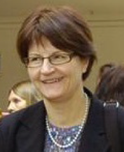- Track your orders
- Save your details for express checkout
×
Registrant Details
Use this window to add all the registrants you wish to register on behalf of. If you want to attend the course also, ensure you add yourself as one of the registrants. Make sure you press "Save" after adding each new registrant.
Registrant 1
First name
Last Name
Email Address
Username ( if known )
NZLS Member or Associate Member?
1x Registrant
Electronic Casebooks - Higher Courts
Published: 13-05-2016
Authors: Justice France, David Goddard KC, Bronwyn McKinlay, Justice Miller, Bruce Scott
Pages: 58
Price From
NZ $55.00
This book is only available in PDF format
Authors: Justice France, David Goddard KC, Bronwyn McKinlay, Justice Miller, Bruce Scott
Published: 4 May 2016
Pages: 58
Introduction
For many lawyers, who spend much of their life buried in and shuffling mountains of paper, the idea of moving to a paperless office through the use of modern technology is daunting to say the least. The notion that one might then go one step further and actually appear in court arguing a case using and relying on an electronic casebook may seem surreal. Nevertheless, that is where the courts, both in New Zealand and overseas, have been heading for some time now.
In that context, the overall purpose of this seminar booklet is to demystify the change to an electronic environment and introduce the next phase in the progression to a paperless Court. More specifically the objectives of this paper are to:
(a) Provide different perspectives on this change, thinking about these issues from the standpoint of the judiciary, advocates, law firms and, not unimportantly, clients.
(b) Briefly describe how other jurisdictions are currently utilising electronic document management.
(c) Identify the relevant rules of court (including practice notes and protocols) that presently, or will shortly, govern the use of electronic casebooks in the Higher Courts.
(d) Discuss briefly the resourcing requirements for electronic casebooks in terms of hardware, software and people.
(e) Consider the different approaches to be taken depending on whether the electronic casebook is to be used in a High Court trial or on appeal.
(f) Emphasise the critical importance of good communication and collaboration between those preparing electronic casebooks in order to ensure that they function as intended and add the most value possible to all users (the court, practitioners and clients).
(g) Touch on the process involved in creating and using an electronic casebook both in a trial and appellate context.
As to the last of these points, the objective of this seminar is not to provide a technical user’s guide on how to build or operate an electronic casebook. That is the purpose of a forthcoming webinar. It is important to appreciate, however, that given the changes in technology and user understanding, this more mechanical, albeit critically important, process will continue to evolve rapidly. Any reader of this booklet in two years’ time is likely to find significant changes have occurred in the process of assembling an electronic casebook.
Content outline
- Perspectives
- Setting the scene
- The judicial use of electronic casebooks
- Unlocking the potential of electronic casebooks – a barrister’s perspective
- Convincing a client and making it work – a law firm perspective
- Creation and management of the electronic casebook
- The overseas experience
- Hardware, software and human resourcing
- Existing Court rules and the electronic document protocol
- Trials versus appeals
- Communication and collaboration
- Creating the casebook
- Using an electronic casebook
 |
 |
 |
| The Hon Justice Ellen France President, Court of Appeal Wellington |
The Hon Justice Forrie Miller Court of Appeal Wellington |
David Goddard KC Wellington |
 |
 |
|
| Bruce Scott Partner, Chapman Tripp Wellington |
Bronwyn McKinlay Senior Associate, Bell Gully Auckland |
